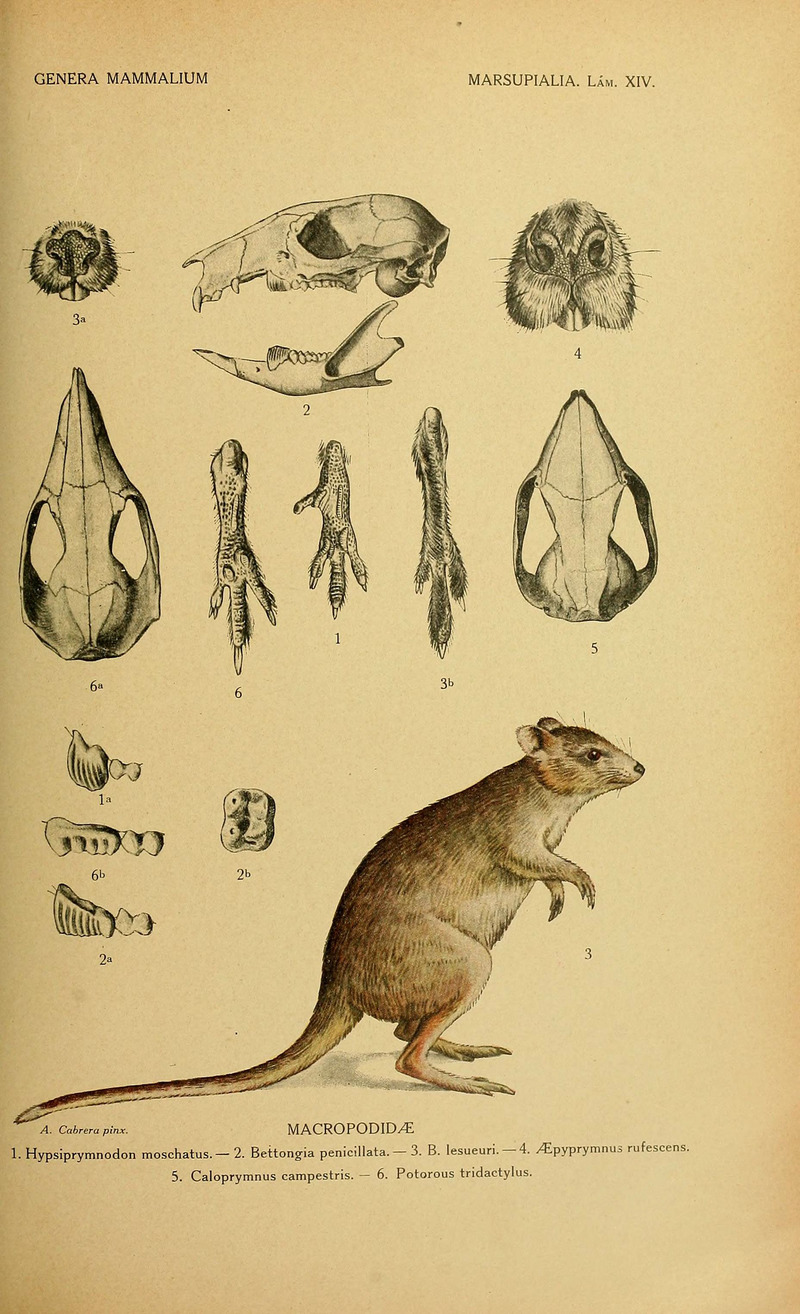|
| Query: Charles lesueur | Result: 1st of 11 | |
burrowing bettong, boodie (Bettongia lesueur)
| Subject: | burrowing bettong, boodie (Bettongia lesueur)
| | Poster: | Wiki Photos (---@---.---)
| |

| Resolution: 1856x3049
File Size: 768681 Bytes
Date: 2011:10:19 09:26:24
Upload Date: 2017:02:03 23:09:42
|
Description
GENERA MAMMALIUM
MARSUPIALIA. Lám. XIV.
A. Cabrera pin:,. MACROPODID/E
1. Hypsiprymnodon moschatus.- 2. Bettongia penicillata. - 3. B. lesueuri.-4. ^pyprymnus rufescens 5. Caloprymnus campestris. — 6. Potorous tridactylus.
Date 1919
Source http://www.flickr.com/photos/biodivlibrary/6260713196
Author Cabrera, Angel; Museo Nacional de Ciencias Naturales (Spain); Spain.
Source: https://commons.wikimedia.org/wiki/File:Genera_mammalium_(6260713196).jpg
The boodie (Bettongia lesueur), also known as the burrowing bettong, is a small marsupial. Its population is an example of the effects of introduced animals on Australian fauna and ecosystems. Once the most common macropodiform mammal on the whole continent, the boodie now only lives on off-lying islands and in a newly introduced population on the mainland at Shark Bay. This animal, first collected during an 1817 French expedition of the west coast, was named after Charles Lesueur, an artist and naturalist who accompanied a previous French expedition. B. lesueur is known by many common names, including the tungoo, Lesueur’s rat-kangaroo, and the short-nosed rat-kangaroo. Order: Diprotodontia, Family: Potoroidae, Genus: Bettongia, Species: Bettongia lesueur (Quoy & Gaimard, 1824). |
^o^
Animal Pictures Archive for smart phones
^o^
|
|

